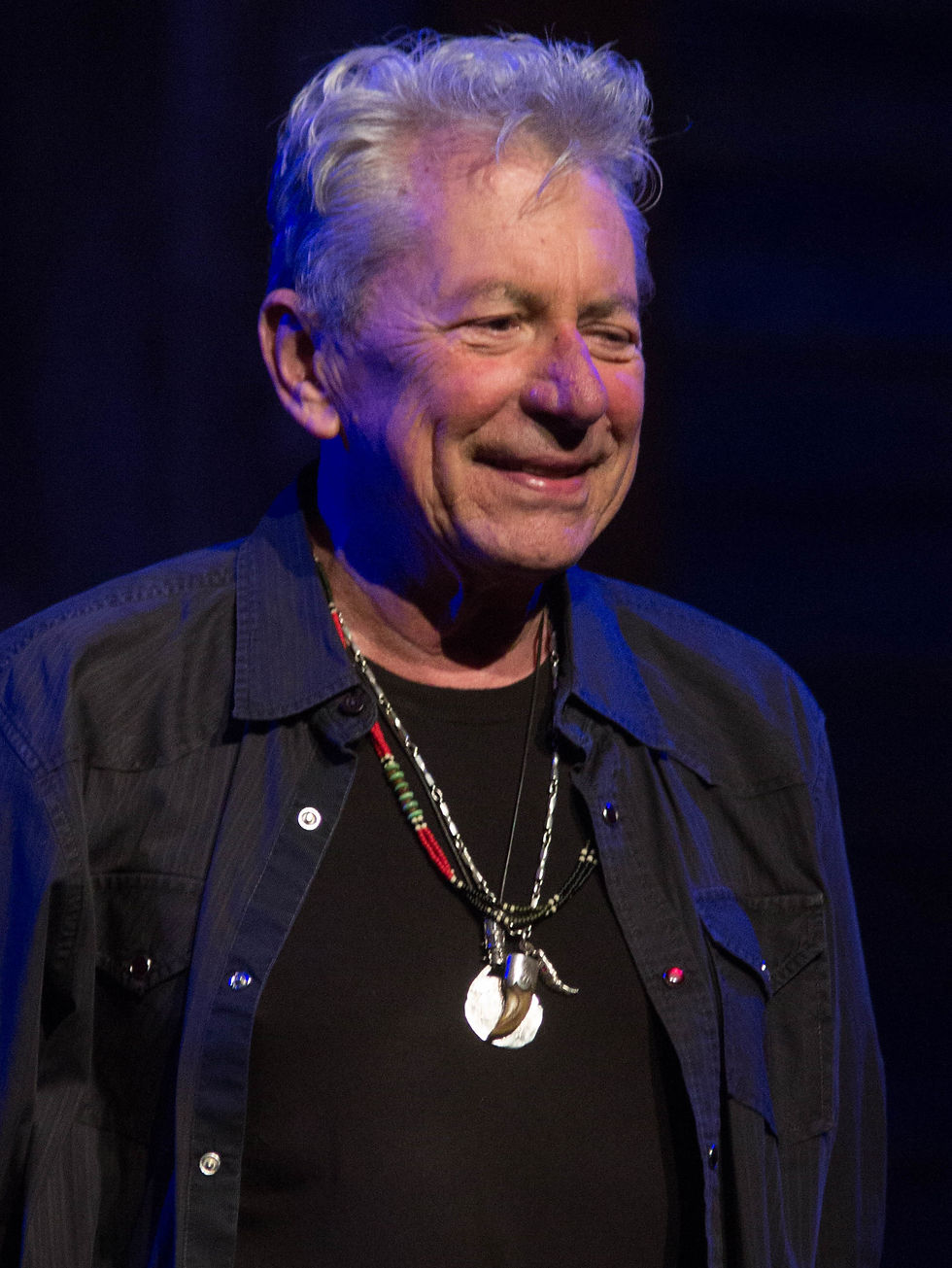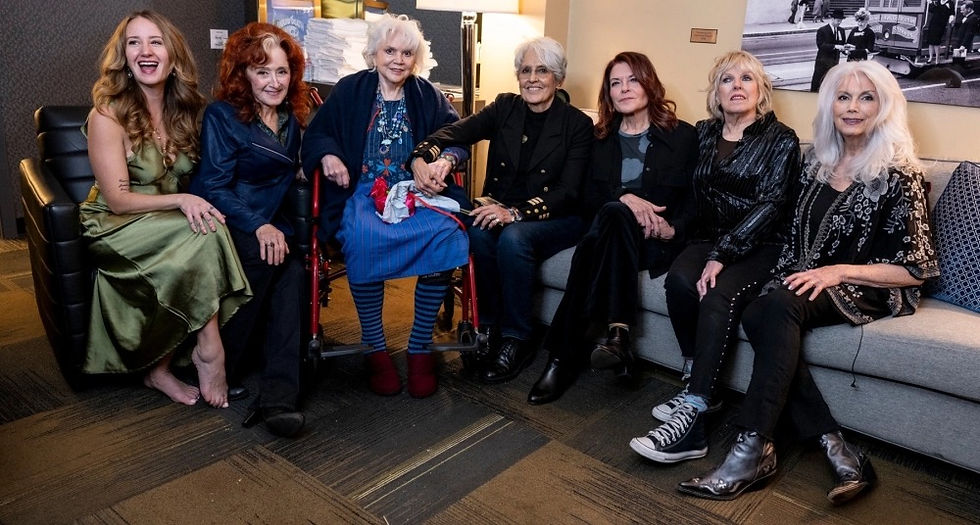Jimmie Dale Gilmore & Butch Hancock - Together Again
- cutlercomms
- Feb 28, 2020
- 5 min read
Updated: Feb 28, 2020

When it comes to being one of the most enduring partnerships in modern music, few can hold a candle to Jimmie Dale Gilmore and Butch Hancock, long regarded as two of the founding fathers of Americana.
Gilmore and Hancock, who both turn 75 in mid-year, will team up yet again for a series of gigs in 2020 which kick-start in New Zealand with a concert at The Tuning Fork in downtown Auckland on March 1.
It is more than 60 years since the pair first met as 12-year-olds in Lubbock, West Texas, and getting on for 50 years since they first starting strumming a guitar and formed The Flatlanders with Joe Ely - perhaps the most formidable trio in Americana music.
And just to further impress statisticians, it is exactly 30 years since they teamed up for a joint appearance in New Zealand, though each has done various gigs - solo and as The Flatlanders - in Australasia during those intervening years.
They have come to New Zealand this time for both The Tuning Fork show and a private engagement. And part of the attraction is that the pair will be supported by Gilmore’s son Colin - a successful singer-songwriter in his own right - and his band.
The coming year appears just as congested as the last for both performers. In 2019 Gilmore released a much-acclaimed album Downey to Lubbock with Californian troubadour Dave Alvin, followed by an international promotional tour. He also found the time to link up again with Hancock and Ely for a series of gigs as The Flatlanders.
“I remember getting off a plane from Europe with Dave, having one day at home and then getting on a bus with Joe and Butch. I think we did something like 15 cities in November,” says Gilmore very matter-of-factly!
So what makes these Texas legends keep on, keeping on?
“Being alive,” chuckles Hancock - getting a laugh out of Gilmore.
After a lifetime in music, the very-affable pair have nothing but sincere affection for the music industry and its participants, almost humbly so.
“We’re just so blessed to have run into music and to have had a huge gang of friends who are both incredible musicians and writers and to be part of that is beyond imagination.”
This in itself is a wonderful tribute, coming from two of Americana’s biggest stars – Gilmore famed for his distinctive high-lonesome tenor voice and Hancock regarded as “one of the finest songwriters of our time”. Each has an impressive output of studio albums – Hancock 12 and Gilmore 9 – to add to the nine produced by The Flatlanders. And then there is the Gilmore/Hancock Two Roads – Live in Australia album from that 1990 tour Down Under.
And out of this collection are songs with cult status. Gilmore’s “Dallas” is included in Rolling Stone’s list of 100 Top Country Songs, while the Hancock compositions “She Never Spoke Spanish to Me,” “If You Were a Bluebird” and “West Texas Waltz” have been covered by some of the biggest names in the business and are up there with the best Alt Country songs ever penned.
But it all got off to a pretty rocky start.
In 1972 the Lubbock lads had teamed up with house-mate Joe Ely and, in their late twenties, headed off to Nashville with a bunch of other musicians, aptly described by Ely as “a living-room band.” They were seeking fame and fortune. They got neither.
A recording session with high-profile producer Shelby Singleton was something of a disaster. The planned album All American Music was released only in a limited run on 8-track tape and went nowhere. The same applied to a promotional single, Gilmore’s “Dallas,” which had a token release of a “few hundred” copies with one side stereo and the other mono.
But there was one thing the band did get out of the visit – a name! They headed north as The Super Natural Playboys and came back to Lubbock as … The Flatlanders.
Gilmore: “We were practising at the house of a guy who worked for Shelby Singleton. And during one of the songs, he said: ‘This is strange for a bunch of flatlanders to come to Nashville and try to teach ‘em how to do hillbilly music.’ And then Steve Wesson, our musical saw and autoharp player, suddenly said: 'That’s it, we’re The Flatlanders’.”
Another foray into Nashville a few years later – this time by Hancock and Ely – was probably more comical than disastrous.
Hancock: “The quick story is that we finally got inside the door at Columbia Records to be greeted by Bill someone, and he said ‘yeah I’ll listen to your tapes’. I had recorded two songs on Joe’s old 4-track tape recorder. We sat there proudly as the first song played and then all of a sudden it started playing another song … backwards. It was playing the other side of the tape!”
Hancock laughs as he delivers the punchline: “So while Joe and I are cringing, Bills listens to this song for 30 seconds, stops the tape and said: ‘Boys if you can do that onstage I will sign you today.’ So we kind of tucked in our tails and headed back to Lubbock.”
By the late seventies, the tide was turning. Ely released his first two impressive solo albums – Joe Ely & Honky Tonk Masquerade – both peppered with songs written by Hancock and Gilmore. And it was enough to launch their successful solo careers. Then a decade later Rounder Records issued the 1972 sessions as More a Legend Than a Band. It was all The Flatlanders needed to reunite as a trio and produce a series of albums and occasional performances, which continue to this day!
Despite the Nashville rejection, Hancock and Gilmore refuse, even under some persuasion, to say a bad word about the country music capital and its moguls.
“I’ve gone on to make a number of recordings there,” says Gilmore.“And to this day we all have some very good friends there. I love Nashville!”
However, the plaudits are tempered somewhat by their comparative praise for Austin, the musical capital of Texas – home these days to Gilmore and a working environment for Hancock who has long resided in the Texas border town of Terlingua.
“One of the great things about Austin was that people were writing songs not necessarily to make a hit. That might have been part of it, but they were there playing music because that’s what they wanted to do,” says Hancock. “If you go to live in Nashville, suddenly you’re under the umbrella of the biz side of the industry.”
“There really was kind of a difference in the mindset because Nashville was really people that wanted to be commercial and with us, it was more like we were crazy people who just loved this music.”
The obvious question for two of the musical lifers is how has the industry changed?
This is once again a cue for Hancock’s creativity: “It’s very mystical. I mean if you look for it, you can’t find it. And if you don’t look, it’s there somewhere!”
So does the fact that the Album/CD dollars have been replaced by digital dimes mean these aging troubadours will have to stay on the road that much longer to make a living?
“Yes, there is something to that,” says Gilmore. “But there is an online income for musicians. There is an outfit called SoundExchange which does solicit online revenue for performers. I once got a business letter from them and there was a cheque in it for a substantial amount of money. It was totally unexpected. So they pro-actively went into the business of finding money for strangers. And I suspect if anybody went to a lot of trouble, there’s a whole lot more (money) out there.”
Gilmore is still enthusiastic about recording, fuelled somewhat by his successful collaboration with Alvin. “I have a couple of things booked with Dave this year and Dave wants to do another record, so that might be on the horizon.”
And what about Hancock, where is his next album?
“I’ve got one that’s been in the can for seven years. I keep saying any day now,” he says with the trademark smile of a contented man – a trait shared by Gilmore!
Paul Cutler
Editor
Crossroads – Americana Music Appreciation





Comments